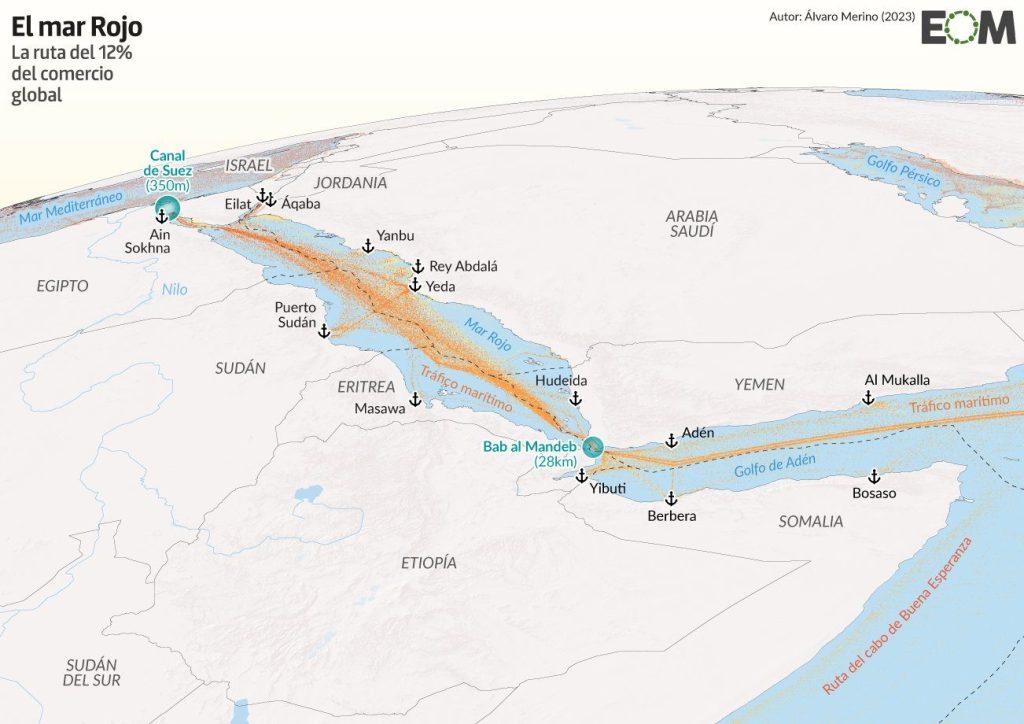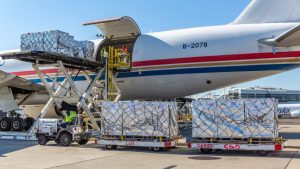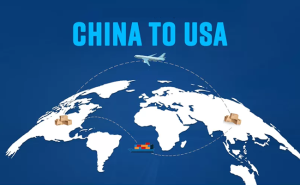Most shipping companies have diverted their ships to avoid Houthi attacks. But the Israeli attack on the Red Sea port of Hodeida represents an even worse escalation for international trade.
Maritime traffic through the Red Sea is a vital shipping lane for transporting goods from Asia to Europe.
However, it is estimated that trade in the area has plummeted by almost 80 percent. A decline now aggravated by the increase in fighting between the Houthi rebels, who control much of Yemen, and Israel.
Already last year, the Iran-backed Houthi militia attacked ships in response to Israel’s war against the Palestinian terrorist movement Hamas in Gaza, forcing shipping companies to divert their ships around southern Africa.

They follow their route
Despite the risks, some ships continue to choose this route, with dozens of vessels traversing a waterway that, at its narrowest point, is only 30 kilometers wide.
Emily Stausboll, a maritime transport analyst at the Denmark-based consultancy Xaneta, told DW that “larger international container ships were the target [of the Houthis].”
“Smaller and regional vessels have not been subject to the same fire,” he adds.
Stausboll maintains that despite the risk of being attacked, smaller operators decided they could still cross the Red Sea “reasonably safely.”
Although the port of Hodeida, located on the shores of the Red Sea in western Yemen, is not a significant stop for international container ships, the facility is Yemen’s main port and a vital entry point for up to 80 percent of imports of fuel, food and other humanitarian aid to the poorest country on the Arabian Peninsula.
The Houthis claimed that Israeli airstrikes on Saturday had damaged the port’s fuel storage facilities and a nearby power plant.










